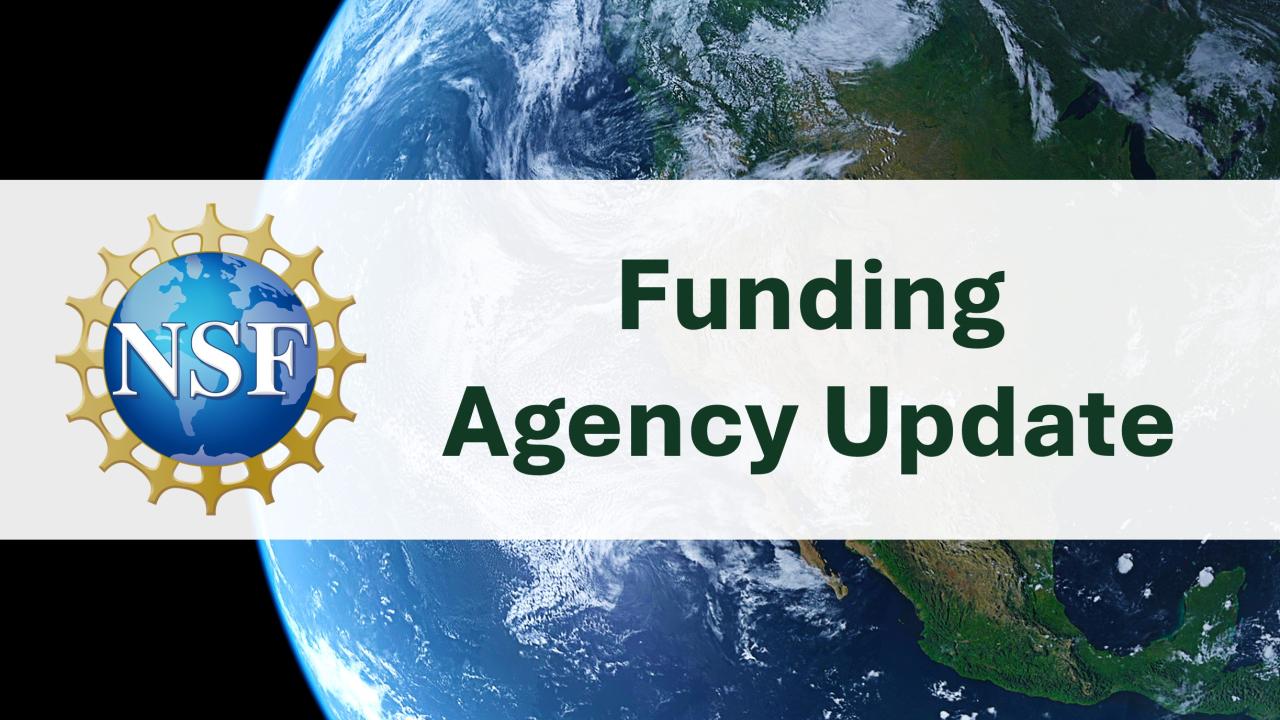
NSF Update: Changes to broader impacts priorities
NSF update of broadening participation criterion of broader impacts
Quick Summary
- NSF recently updated their broader impacts review criterion to align with the priorities of the current administration.
- Applicants are wondering “how can I discuss broadening participation and still get funded?”
- We recommend designing programs for broadening participation that are based on non-protected characteristics
Background
The National Science Foundation (NSF) uses two primary criteria to evaluate proposals: intellectual merit (how your work enhances your field) and broader impacts (how your work benefits society).
Since the America COMPETES Reauthorization Act of 2010, there have been seven areas emphasized for broader impacts:
- Increasing economic competitiveness
- Advancing the health and welfare of the American public
- Supporting national defense
- Enhancing partnerships between academia and industry
- Developing a globally competitive STEM workforce through improved pre-kindergarten through grade 12 STEM education and teacher development, and improved undergraduate STEM education and instruction
- Improving public scientific literacy and engagement with science and technology
- Expanding participation of women and individuals from underrepresented groups in STEM
What has changed?
In NSF's April 18th NSF update of the broader impacts guidelines, the most affected is the seventh that focuses on broadening participation in STEM. The update states that “Investigators wishing to address goal seven — expanding participation in STEM for women and underrepresented groups — must ensure that all outreach, recruitment, or participatory activities in NSF projects are open and available to all Americans.” This means that any activities and research programs must be open to all participants, and not exclusive to groups protected by Title VII of the Civil Rights Act of 1964.
Can broadening participation still be used?
Yes, there are non-protected characteristics that can be used when discussing broadening participation in STEM. These non-protected characteristics include traits such as socioeconomic status, geography, institutional type, and career stage. Broadening participation can still be used as long as your activities and research are open to all Americans.
Besides broadening participation, how else can I demonstrate broader impacts?
There are so many ways that research and outreach activities can benefit society. We encourage you to reflect on how your research and outreach plans can benefit industry, economic development, national security, and workforce development. These areas align with the first six America COMPETES Reauthorization Act priorities that are currently being emphasized by NSF.
Key takeaway
When preparing your proposal, the most important thing is to develop a broader impacts strategy that aligns with your strengths and interests. The ARIS Broader Impacts Toolkit and Amiable Consulting Broader Impacts Webinars are both very helpful resources for thinking through how to build a meaningful broader impacts plan. We on the UC Davis Proposal Development Services (PDS) team are also happy to help you develop a strong (and compliant) broader impacts plan - just reach out to us at pds@ucdavis.edu.
Resources
Below is a curated list of resources that we highly recommend bookmarking if you are interested in applying to an NSF funding opportunity:
- Updates on NSF Priorities FAQ – This frequently updated NSF page contains a tremendous amount of helpful information. Most questions that you will have about NSF policies on broader impacts have already been answered on this page.
- ARIS Broader Impacts Toolkit – Bookmark this website if you’re looking to develop a thorough and compliant broader impacts section. Their helpful tools will walk you through the process of building a broader impacts strategy that suits you and your work. This site was updated in April 2025 to align with the new NSF broader impacts priorities.
- Amiable Consulting Broader Impacts Webinars – Recently, Amiable Consulting hosted two free webinars focusing on the changes to NSF broader impacts: Building Better (and EO-compliant!) Broader Impacts and Dissecting NSF’s New Broader Impacts Rules webinar. Recordings of these informative webinars are available for free with email registration.
- Broader Impacts – As you write your next NSF proposal, visit this NSF Broader Impacts page to learn more about how and why this criterion is used during the review process, and different types of broader impact areas.
- NSF Implementation of Recent Executive Orders – For general information about changes to NSF policy in response to executive orders, be sure to bookmark this page.